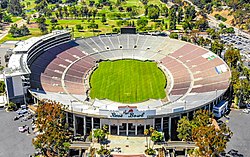| CONCACAF Championship | |
|---|---|
 2002 CONCACAF Gold Cup official logo | |
| Tournament details | |
| Host country | United States |
| Dates | January 18 – February 2 |
| Teams | 12 (from 3 confederations) |
| Venue | 2 (in 2 host cities) |
| Final positions | |
| Champions | |
| Runners-up | |
| Third place | |
| Fourth place | |
| Tournament statistics | |
| Matches played | 20 |
| Goals scored | 39 (1.95 per match) |
| Top scorer(s) | (4 goals) |
| Best player | |
| Best goalkeeper | |
| Fair play award | |
← 2000 2003 → | |
The 2002 CONCACAF Gold Cup was the sixth edition of the Gold Cup, the soccer championship of North America, Central America and the Caribbean (CONCACAF). This was the last Gold Cup to be played in an even-numbered year and in the first two months of a calendar year; since 2003 the tournament has been played every odd-numbered year's June and/or July.
Contents
- Qualified teams
- Qualification play-off
- Venues
- Squads
- Group stage
- Group A
- Group B
- Group C
- Group D
- Knockout stage
- Quarterfinals
- Semifinals
- Third place match
- Final
- Awards
- Best XI
- Statistics
- Goalscorers
- References
- External links
The tournament was once again held in the United States, in Miami and Pasadena. The format of the tournament stayed the same as in 2000: twelve teams were split into four groups of three. The top two teams in each group would advance to the quarterfinals. Ecuador and South Korea were invited from outside CONCACAF.
Canada, who rode the coin toss all the way to winning the 2000 Cup, needed luck once again, as all games in Group D ended with a 2–0 result. Lots were drawn, with Canada and Haiti moving on to the next round; Ecuador did not. But the Canadian team's luck ran dry in the semifinals, as the U.S. beat them on penalties after tying 0–0. The United States then met Costa Rica in the final and topped them 2–0 behind goals by Josh Wolff and Jeff Agoos for their first tournament win since 1991.
During the tournament, Cuban players Alberto Delgado and Rey Ángel Martínez defected from Cuba to the United States.


